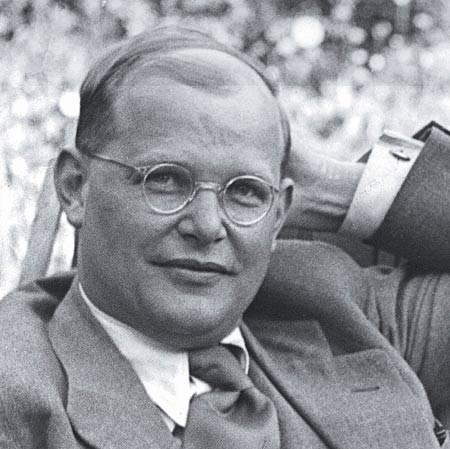The following is an excerpt from Michael Svigel’s Retro Christianity, pages 213-214.
God has gifted individual believers in such a way that we need each other for accomplishing the tasks of evangelism, edification, and exaltation. To put it bluntly: God never intended for one person to do it all. As far as spiritual gifts go, we’re not called to be either a violin soloist or a one-man-band. Paul said, “God arranged the members in the body, each one of them, as he chose” (1 Cor. 12:18). This means God has placed you into his church for specific purposes. But those purposes are inseparably linked to the gifts and purposes of all other believers. We must depend on each other – really depend on each other. We’re not just a single performer standing in the spotlight or an individual soloist dutifully playing an important part. By his sovereign design, God purposed that our unique spiritual gifts complement each other, like members of a jazz quartet or a chamber orchestra.
In fact, let me takes this in a direction you may not have considered before. Instead of taking spiritual gift inventories simply to determine our personal giftedness, maybe we should also take note of our un-giftedness – those areas of weakness for which we desperately need others. As we survey our ministry goals, build our ministry teams, and then begin to minister, we need to be sensitive not only to our strengths, but also to our weaknesses.
But this demands the most difficult part of the equation: humility.
It takes humility to say, “I’m a teacher, but I’m a lousy administrator.” Who wants to be a lousy anything? It takes a humble spirit to say, “I’m good at hospitality, but I have trouble discerning people’s needs.” And it takes an extra portion of meekness to turn this admission into a plea for help from those who are strong in those areas.
But matching a person’s gifts to a particular ministry is only a first step. We must also match believers’ gifts with other believers’ ungiftedness. This leads to three practical actions we can take.
First, have you matched your gifts with the right ministry needs for the edification of the body? if not, do it. There’s a gap that needs to be filled even as you read these words. Or, perhaps worse, a frustrated saint is dutifully holding your place until the right fit comes along. It’s time for you to report for duty.
Second, if you’ve already matched your gifts with the right ministry, have you unwittingly adopted the “axe and hose” principle? Are you trying to do it all, forgetting that God intentionally un-gifted you in certain areas so other believers can complement your ministry? What are your weaknesses? Who can you ask to fill that need and free you to do what God meant for you to do?
Finally, if you’ve made your match and humbly built your team, are there others who need your help making their own matches? Gently encourage people to step up to the plate. Ask how they’re fitting into the essential works of the church. Find out if they’re frustrated in their roles. Playing “matchmaker” will not only help gifted saints, but it will also minister to the entire body of Christ.
The following is an excerpt from Michael Svigel’s RetroChristianity, pages 90-91.
As strange as it may sound, the center of some branches of evangelicalism seems to have moved toward the fringe of classic orthodox Christianity. In short, many evangelical churches are appearing increasingly more evangelical, but increasingly less Christian.
You see, the center of Christianity has always been Jesus Christ. It is not the Bible. It is not expository preaching. It is not a personal response to the gospel message. As important as all of these are for supporting the center, the focal point of right Christian faith is God the Son who became man, lived a life of perfect righteousness, revealed the Father, died for our sins, rose from the dead, ascended into heaven, bequeathed the Spirit, and will come again. Through Christ we understand the Bible as the inspired and inerrant Word of God that points us to him. Through Christ we encounter the Triune God of Father, Son, and Holy Spirit. Through Christ we have salvation and forgiveness of sins by grace through faith alone. Through Christ we are empowered to live a regenerated life by his Spirit. Through Christ we are incorporated into the church and receive instruction and power to carry out its mission. Through Christ we have a proper view of the depravity and neediness of fallen humanity as well as the ideal model and ultimate pattern of redeemed humanity. Through Christ we can anticipate the new world to come, when this fallen cosmos will be redeemed by his power and glory.
Don’t misunderstand me. I love the inerrant Word of God, powerful expository preaching, a clear presentation of the gospel of grace through faith, and all the things that mark me as an evangelical. Nevertheless, to the degree that evangelicalism has put “me and my Bible” at the center of the Christian worldview, it has removed Jesus Christ from the center. To the degree that is has focused on a personal, voluntary, and free-will response to bare-bones gospel presentation, evangelicalism has reduced the profound person and work of Jesus Christ to mere propositions to be preached and data to be processed. To the degree that evangelicals have modeled their methods and structures after cultural forms supported by a few proof-texts, they have failed to measure them against the one model of all things human and perfect: Jesus Christ.
What if evangelicalism has unwittingly drifted not into heresy per se, but into a heterodox emphasis on things that were always meant to orbit around Jesus Christ and point to him? What if twenty-first-century evangelicals have replaced the Christ-centered community of faith and faithfulness with an insidious me-centered individualistic philosophy? What if the means of expressing the faith has become the faith itself? What if evangelicals have gone the way of nineteenth-century liberalism and have drifted from a conscious continuity with the great tradition of the church that has always placed Jesus Christ at the center of all things? What if we’ve gone so far astray that everything I’m writing now actually sounds “liberal” to you? In short, what if the “center” of much evangelicalism has actually migrated toward the “fringe” of authentic, historical, orthodox Christianity?
But it is very striking that in the New Testament the terms for calling, when used specifically with reference to salvation, are most uniformly applied, not to the universal call of the gospel, but to the call that ushers men into a state of salvation and is therefore effectual. – John Murray, Redemption Accomplished and Applied
God is faithful, by whom you were called into the fellowship of his Son, Jesus Christ our Lord. – 1 Corinthians 1:9
—–
Jill and Eustace didn’t know how to get Narnia. But they figured calling out to Aslan – whom Jill had not yet met – couldn’t hurt.
Sure enough, it worked.
And that’s when Jill first met Aslan…
—–
Just on this side of the stream lay the lion.
It lay with its head raised and its two forepaws out in front of it, like the lions in Trafalgar Square. She knew at once that it had seen her, for its eyes looked straight into hers for a moment and then turned away – as if it knew her quite well and didn’t think much of her.
“If I run away, it’ll be after me in a moment,” thought Jill. “And if I go on, I shall run straight into its mouth.” Anyway, she couldn’t have moved if she had tried, and she couldn’t take her eyes off it. How long this lasted, she could not be sure; it seemed like hours. And the thirst became so bad that she almost felt she would not mind being eaten by the lion if only she could be sure of getting a mouthful of water first.
“If you’re thirsty, you may drink.”
They were the first words she had hears since Scrubb (Eustace) had spoken to her on the edge of the cliff. For a second she stared here and there, wondering who had spoken. Then the voice said again, “If you are thirsty, come and drink,” and of course she remembered what Scrubb had said about animals talking in that other world, and realized that it was the lion speaking. Anyways, she had seen its lips move this time, and the voice was not like a man’s. It was deeper, wilder, and stronger; a sort of heavy, golden voice. It did not make her any less frightened than she had been before, but it made her frightened in rather a different way.
“Are you not thirsty?” said the Lion.
“I’m dying of thirst,” said Jill.
“Then drink,” said the Lion.
“May I – could I – would you mind going away while I do?” said Jill.
The Lion answered this only by a look and a very low growl. And as Jill gazed at its motionless bulk, she realized that she might as well have asked the whole mountain to move aside for her convenience.
The delicious rippling noise of the stream was driving her nearly frantic.
“Will you promise not to – do anything to me, if I do come?” said Jill.
“I make no promise,” said the Lion.
Jill was so thirsty now that, without noticing it, she had come a step closer.
“Do you eat girls?” she said.
“I have swallowed up girls and boys, women and men, kings and emperors, cities and realms,” said the Lion. It didn’t say this as if it were boasting, nor as if it were sorry, not as if it were angry. It just said it.
“I daren’t come and drink,” said Jill.
“Then you will die of thirst,” said the Lion.
“Oh dear!” said Jill, coming another step nearer. “I suppose I must go and look for another stream then.”
“There is no other stream,” said the Lion.
It never occurred to Jill to disbelieve the Lion – no one who had seen his stern face could do that – and her mind suddenly made itself up. It was the worst thing she had ever had to do, but she went forward to the stream, knelt down, and began scooping up water in her hand. It was the coldest, most refreshing water she had ever tasted. You didn’t need to drink much of it, for it quenched your thirst at once. Before she tasted it she had been intending to make a dash away from the Lion the moment she had finished. Now, she realized that this would be on the whole the most dangerous thing of all. She got up and stood there with her lips still wet from drinking.
“Come here,” said the Lion. And she had to. She was almost between its front paws now, looking straight into its face. But she couldn’t stand that for long; she dropped her eyes.
“…the Boy is safe. I have blown him to Narnia. But your task will be the harder because of what you have done.”
“Please, what task, Sir?” said Jill.
“The task for which I called you and him here out of your own world.”
This puzzled Jill very much. “It’s mistaking me for someone else,” she thought. She didn’t dare to tell the Lion this, though she felt things would get into a dreadful muddle unless she did.
“Speak your thought, Human Child,” said the Lion.
“I was wondering – I mean – could there be some mistake? Because nobody called me and Scrubb, you know. It was we who asked to come here. Scrubb said we were to call to – to Somebody – it was a name I wouldn’t know – and perhaps the Somebody would let us in. And we did, and then we found the door open.”
“You would not have called to me unless I had been calling to you,” said the Lion.
—–
And we know that for those who love God all things work together for good, for those who are called according to his purpose. 29 For those whom he foreknew he also predestined to be conformed to the image of his Son, in order that he might be the firstborn among many brothers. 30 And those whom he predestined he also called, and those whom he called he also justified, and those whom he justified he also glorified.
Romans 8:28–30
From Dietrich Bonhoeffer in Tegel prison, to his fiance Maria von Wedemeyer.
—–
12 August 1943
My Dearest Maria,
After sending off my last letter to you, I was suddenly afraid that my Tegel address on the envelope might make trouble for you in the village. Although I can almost hear you laugh out loud at the idea – and I look forward to hearing you laugh – I don’t think such matters should be treated lightly. It really isn’t necessary for you to be subjected to village gossip about your fiance. And so, to preclude any such possibility, I didn’t write to you again but asked my parents how you felt about it. Today, however, your dear letter arrived, and I simply can’t remain silent. But please, next time tell me how I’m to write to you in the future. I won’t write again until I hear.
So now to your letter. You can’t possibly imagine what it means to me, in my present predicament, to have you. I’m under God’s special guidance here, I feel sure. To me, the way in which we found each other such a short time before my arrest seems a definite indication of that. Once again, things went “hominum confusione et dei providentia (according to man’s confusion and God’s providence).” It amazes me anew every day how little I have deserved such happiness, just as it daily and deeply moves me that God should have put you through such an ordeal this past year, and that he so clearly meant me to bring you grief and sorrow, so soon after we got to know each other, to endow our love with the proper foundation and the proper strength. Moreover, when I consider the state of the world, the total obscurity enshrouding our personal destiny, and my present imprisonment, our union – if it wasn’t frivolity, which it certainly wasn’t – can only be a token of God’s grace and goodness, which summon us to believe in him. We would have to be blind not to see that. When Jeremiah said, in his people’s hour of direst need, that “houses and fields [and vineyards] shall again be bought in this land,” it was a token of confidence in the future. That requires faith, and may God grant it to us daily. I don’t mean the faith that flees the world, but the faith that endures in the world and loves and remains true to that world in spite of all the hardships it brings us. Our marriage must be a “yes” to God’s earth. It must strengthen our resolve to do and accomplish something on earth. I fear that Christians who venture to stand on earth on only one leg will stand in heaven on only one leg too.
I’m thoroughly in favor of your pastor marrying us, but the way. In these matters I think would should always to the most obvious thing. That’s more important than any personal preference.
So now you’ve got the house full of people. How much I would have liked to see you running the household at this time! Your mother wrote me such a nice letter again, telling me all kinds of things. Please thank her very much indeed; I know what a sacrifice if must be for her to find the time to write to me. But there’s no greater pleasure in this place than getting letters from people. One rereads them innumerable times so as to share in their lives.
It’s a cloudy, rainy day outside, a perfect accompaniment to my fruitless wait for the situation to resolve itself. But let us never forget how much we have to be thankful for, and how much good we experience even so; I have only to think of you, and all the little shadows on my soul disperse. So let us continue to be really patient for the rest of the time we’re compelled to wait, and not waste a single hour grousing and grumbling. From God’s standpoint, this time of waiting is immensely valuable; much depends on how we endure it and on whether we need not feel ashamed, later on, of having failed to recognize these months of testing as a gift from God. I’m convinced that our love and our marriage will derive eternal strength from this time of trial. So let us wait, with and for each other, until our wedding day dawns. It won’t be much longer, my dear, dear Maria!
Please give my love to your mother and your brothers and sisters. Is it Lutgert who was killed in action? You must all be very sad. Please remember me to his wife. Good-bye, dearest Maria, and may God preserve us and our families.
Your Dietrich, who looks forward from one letter to the next, embraces you!



